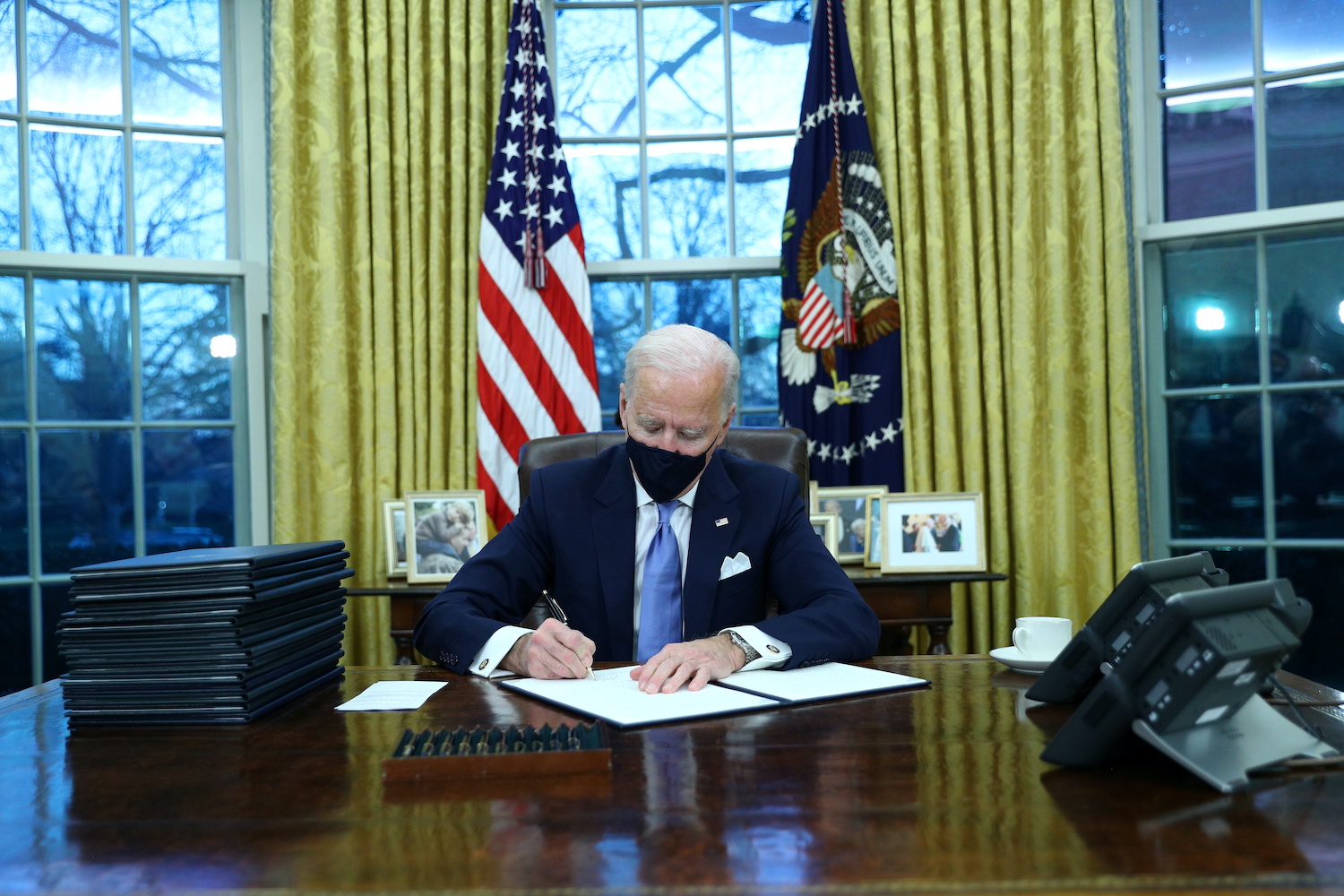Legislation to pump $170 billion into research and development; Lawmakers say bill is an opportunity for Washington to “strike a blow” against unfair competition from Beijing
(AF) The US Senate on Tuesday passed a sweeping industrial policy bill aimed at what Joe Biden’s administration has called a surging economic threat from China.
The legislation overcame partisan divisions to support pumping more than $170 billion into research and development.
With both American political parties increasingly worried about competition from Asia’s largest power, the measure cleared the chamber on a 68-32 vote, one of the most significant bipartisan achievements in Congress since Joe Biden’s presidency began in January.
It represents the largest investment in scientific research and technological innovation “in generations,” according to Senate Majority Leader Chuck Schumer.
The bill now heads to the House of Representatives, which earlier passed a different version. The two will have to be reconciled into a single bill before it is sent to the White House for the president’s signature.
Biden said he was “encouraged” by the Senate’s passage of the United States Innovation and Competition Act. “We are in a competition to win the 21st century, and the starting gun has gone off,” Biden said.
“As other countries continue to invest in their own research and development, we cannot risk falling behind. America must maintain its position as the most innovative and productive nation on Earth.”
BOLSTERING CAPACITY
The package, a key provision of which addresses a shortage of semiconductors that has slowed US auto production this year, will help US industry bolster its capacity and improve technology.
It is seen as crucial for US efforts to avoid being outmanoeuvred by Beijing as the adversaries compete in the race to technological innovation.
The proposal aims to address a number of technological areas in which the US has fallen behind its Chinese rivals, including in semiconductor production, and allocates $52 billion in funding for domestic manufacturing of chips.
It also authorises $120 billion over five years for research and development in key areas such as artificial intelligence and quantum science.
“This is an opportunity for the US to strike a blow on behalf of answering the unfair competition that we are seeing from communist China,” said Republican Senator Roger Wicker, one of the main co-sponsors.
However, the bipartisanship did not extend into Biden’s infrastructure investment push, according to a Republican senator. “I spoke with the president this afternoon and he ended our infrastructure negotiations,” Shelley Moore Capito said in a statement.
Biden changed course after Capito, the leader of a group of six Senate Republicans handling negotiations, offered $330 billion in new spending on infrastructure, far short of the president’s reduced $1.7 trillion offer.
With reporting by Agence France-Presse and Reuters























